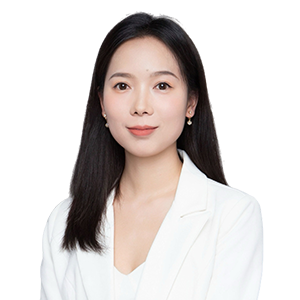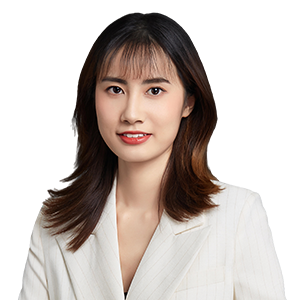
預(yù)約咨詢
李閨秀(Neige)
金牌文書導(dǎo)師
榮譽(yù):
4年
入司年限
446
案例總數(shù)
109
咨詢?nèi)藬?shù)
簡介:211高校英語專業(yè)畢業(yè),從業(yè)4年,現(xiàn)指南者文書主管。具備扎實(shí)的英語寫作功底和良好的創(chuàng)新能力,同時(shí)積累了深厚的經(jīng)濟(jì)金融、EECS等熱門學(xué)科的專業(yè)知識(shí)。憑借對(duì)院校招生偏好和專業(yè)特色的精準(zhǔn)把握,已幫助上百位學(xué)員斬獲名校offer,其中45%為Top 30院校。
尊享服務(wù)
擅長理工科申請(qǐng)
擅長QS前30院校申請(qǐng)

收藏成功
已添加至{{ selectCollectNames.join(',') }}
更改
【心動(dòng)的文書】PS中如何正確展示我做了什么、怎么做以及我收獲了什么?
 收藏已取消
收藏已取消

![]() {{!collectStatus ? '收藏' : '已收藏'}}
{{!collectStatus ? '收藏' : '已收藏'}}
收藏成功
已添加至{{ selectCollectNames.join(',') }}
更改
指南者留學(xué) 李閨秀(Neige)
2023年04月19日
閱讀量:2233
<p>Internship experience 是perseonal statement中很重要的一部分內(nèi)容,然而大部分同學(xué)在為期短短幾個(gè)月的實(shí)習(xí)中從事的都是基礎(chǔ)性的工作,因此寫出來的PS往往是先流水賬羅列所做的工作,緊接著在技能提升和經(jīng)驗(yàn)積累方面盲目堆砌不相關(guān)的內(nèi)容,充斥著套話(鍛煉了專業(yè)能力,提高了邏輯分析能力、問題解決能力、溝通能力...),但<strong>過于堆砌、刻意的強(qiáng)調(diào)</strong>容易被招生官認(rèn)為是“走過場”,那么這份經(jīng)歷就很有可能成為減分項(xiàng)。</p>
<p> </p>
<p>首先要明確的是我們?cè)诤啔v中已經(jīng)寫清楚 “「我」做了什么”,那么在PS中寫實(shí)習(xí)經(jīng)歷的目的就是在簡單陳述“「我」做了什么”的基礎(chǔ)上充分展示“<strong>「我」怎么做</strong>”以及“<strong>「我」收獲了什么</strong>”,而這三者之間是無法割裂的,<strong>“「我」的收獲”必須基于“「我」所做的事情”以及「我」怎么做,有理有據(jù),方能服人。</strong></p>
<p> </p>
<p>今天<strong>#心動(dòng)的文書#</strong>欄目,將與大家探討如何將實(shí)習(xí)中的技能和收獲與由此積累的經(jīng)驗(yàn)一一對(duì)應(yīng),以<strong>整合成一份事實(shí)依據(jù)與結(jié)論總結(jié)俱全</strong>的personal statement。</p>
<p> </p>
<p><span class="h1">方法一:著眼于小點(diǎn),談能力增長/行業(yè)認(rèn)知</span></p>
<p> </p>
<p><strong>01╱ Before╱</strong></p>
<p> </p>
<p>It all started with my internship experience at Shenwan Hongyuan Financing Services Co., Ltd. Working in the investment banking department, I was involved in an IPO project of a Beijing technology company on the Science and Technology Innovation Board and was responsible for collating the issuer’s and its subsidiaries’ accounts and the subsequent reconciliation with the corresponding bank vouchers.<span style="background-color: #f1f780;">【簡單闡述工作內(nèi)容】</span>During this process, in addition to consolidating my auditing skills and improving my data handling skills, I gained an understanding of the financial situation of different companies.<span style="background-color: #f1f780;">【收獲:提高審計(jì)技能和數(shù)據(jù)分析能力,并了解不同公司的財(cái)務(wù)狀況】</span>Meanwhile, I found that there were still many problems in the implementation phase of the accounting-related systems. Only by further deepening the construction of the relevant systems and finding an effective balance between the effectiveness of accounting information and the standardization of processes can the overall level of accounting be further improved<span style="background-color: #f1f780;">【認(rèn)知:會(huì)計(jì)相關(guān)制度在實(shí)施階段依然存在問題】</span>. It awakened my desire to consolidate my professional skills further and broaden my career vision.</p>
<p> </p>
<p><strong>02╱ After ╱</strong></p>
<p> </p>
<p>It all started with my internship experience at Shenwan Hongyuan Financing Services Co., Ltd. Working in the investment banking department, I was involved in an IPO project of a Beijing technology company on the Science and Technology Innovation Board, during which I achieved plenty of first-hand and unique insights into accounting. <span style="background-color: #f1f780;">【簡單闡述工作內(nèi)容】</span>My main task was collating the issuer’s and its subsidiaries’ accounts and the subsequent reconciliation with the corresponding bank vouchers. However, the separate operations of the issuer and its subsidiaries and the interfacing with different banks resulted in different journal standards and bank voucher formats. This difference from the way I had previously been taught about preparing audit drafts made me inefficient. For this reason, I wrote a Python program that enabled the splitting and combining of Excel sheets, thus solving this problem successfully. <span style="background-color: #f1f780;">【詳寫一點(diǎn)工作內(nèi)容:凸顯“編寫一個(gè)Python程序來提高審計(jì)工作效率”這一個(gè)小點(diǎn)】</span></p>
<p> </p>
<p>In retrospect, apart from the theory-applying and problem-solving abilities trained during this experience, the practical experience in combining accounting knowledge with information technology also informed me that the informatization of the accounting industry would be an inevitable trend <span style="background-color: #f1f780;">【從具體的實(shí)踐經(jīng)驗(yàn)中獲得的能力提升以及對(duì)行業(yè)發(fā)展趨勢(shì)的認(rèn)知】</span>. Such a trend, in turn, placed greater demands on future accounting practitioners<span style="background-color: #f1f780;">【引申至人才發(fā)展要求】</span>. It awakened my desire to consolidate my professional skills further and broaden my career vision.</p>
<p> </p>
<p><strong>03╱ 解析 ╱</strong></p>
<p> </p>
<p>原文只是簡單闡述了「我」的工作內(nèi)容,緊接著就闡述了「我」在實(shí)習(xí)經(jīng)歷中的收獲和認(rèn)知,咋一看內(nèi)容很豐富,<strong>但細(xì)看就會(huì)發(fā)現(xiàn)這些收獲和認(rèn)知毫無根據(jù),因此并不具備說服力。</strong></p>
<p> </p>
<p>修改后的PS用了“總-分”的結(jié)構(gòu),在簡單闡述工作內(nèi)容的基礎(chǔ)上,以一句“獲得對(duì)會(huì)計(jì)行業(yè)的第一手見解”總引下文;下文則<strong>開始詳細(xì)闡述「我」編寫了一個(gè)Python程序來解決會(huì)計(jì)工作中效率低的問題</strong>,由此來體現(xiàn)「我」的理論應(yīng)用能力和問題解決能力。同時(shí),<strong>這個(gè)小點(diǎn)是會(huì)計(jì)知識(shí)與信息技術(shù)結(jié)合的很好體現(xiàn)</strong>,由此引出的「我」對(duì)會(huì)計(jì)行業(yè)趨勢(shì)的認(rèn)知就不是空穴來風(fēng),更具說服力。</p>
<p> </p>
<p>當(dāng)然,實(shí)習(xí)經(jīng)歷中可以寫的小點(diǎn)有很多,比如學(xué)會(huì)用一個(gè)軟件,數(shù)據(jù)分析能力 up,或者接觸了一個(gè)新領(lǐng)域,學(xué)習(xí)能力/適應(yīng)能力 up,亦或者閱讀相關(guān)工作報(bào)告/行業(yè)分析報(bào)告/相關(guān)書籍: 將閱讀的內(nèi)容轉(zhuǎn)化成從工作中對(duì)專業(yè)/行業(yè)的理解......</p>
<p> </p>
<p><span class="h1">方法二:著眼于不足,談未來改進(jìn)目標(biāo)/學(xué)習(xí)計(jì)劃</span></p>
<p> </p>
<p><strong>01╱ Before╱</strong></p>
<p> </p>
<p>During my tenure as a customer operation manager at China Ping An Property Insurance Co., Ltd., I was mainly responsible for daily market research, interbank funding policies and customer purchasing groups analysis, and writing business analysis reports <span style="background-color: #f1f780;">【闡述日常工作】</span>. Besides, in a service providers customer acquisition and traffic attraction project, I led a team to analyze the current customer acquisition methods and calculated the annual target customer acquisition based on the growth of customer acquisition for service providers currently working with each channel. Accordingly, the problems in the model were revealed by measuring the gap between the achieved and target values and comparing the cost input and profit output of each channel service provider. In response to the shortcomings of the model, I proposed improvement strategies <span style="background-color: #f1f780;">【詳寫了一個(gè)項(xiàng)目:重點(diǎn)放在分析過程上】</span>. Personally, my data analysis and strategy development skills were greatly strengthened <span style="background-color: #f1f780;">【收獲:數(shù)據(jù)分析能力、決策制定能力】</span>.</p>
<p> </p>
<p><strong>02╱ After ╱</strong></p>
<p> </p>
<p>During my tenure as a customer operation manager at China Ping An Property Insurance Co., Ltd., I was responsible for daily market research, interbank funding policies and customer purchasing groups analysis, and business analysis reports writing, which significantly developed my acumen in analyzing business issues <span style="background-color: #f1f780;">【因?yàn)榛A(chǔ)工作大多是分析類工作,所以在列舉基礎(chǔ)工作的基礎(chǔ)上還簡單提了從這些工作中獲得了能力提升】</span>.</p>
<p> </p>
<p>Particularly worth mentioning is that in a service providers customer acquisition and traffic attraction project, I led a team to explore the existing customer acquisition and traffic attraction models on the issue of the decline in customer acquisition in recent years. We found that the traditional channel was overfunded in the model through massive data analysis and put forward improvement strategies, including reducing service providers' investment in customer acquisition and traffic attraction, developing new cash discount investment policies, and investing more cash discounts in younger customer groups, which won the directors' praise <span style="background-color: #f1f780;">【詳寫了一個(gè)項(xiàng)目:重點(diǎn)放在改進(jìn)策略上】</span>.</p>
<p> </p>
<p>Policy analysis skills were necessary to capture industry orientation. But during my initial strategy development, I ignored the impact of the government’s regular comprehensive reform of the industry on market product prices, resulting in a deviation in the service provider cost input and profit calculation. It showed that I still have much room for improvement in policy foresight. Hence, I was urgently eager to further boost my comprehensive development through a postgraduate-level public policy study <span style="background-color: #f1f780;">【在策略制定中發(fā)現(xiàn)自己的不足之處,再次強(qiáng)調(diào)深造的必要性】</span>.</p>
<p> </p>
<p><strong>03╱ 解析 ╱</strong></p>
<p> </p>
<p>上述經(jīng)歷用于【會(huì)計(jì)】跨申【公共政策】的文書中,因此,如何讓經(jīng)歷更貼合申請(qǐng)項(xiàng)目是重點(diǎn)也是難點(diǎn)。</p>
<p><br />原文雖然在簡單闡述主要工作的基礎(chǔ)上詳寫了一個(gè)項(xiàng)目來體現(xiàn)「我」的數(shù)據(jù)分析能力和決策制定能力,但其實(shí)該項(xiàng)目過程既沒有提及處理了多少數(shù)據(jù),也沒有涉及用到數(shù)據(jù)分析工具,<strong>并不能體現(xiàn)數(shù)據(jù)分析能力;而策略制定也寫的很模糊,一筆帶過,所以原文讀起來特別像流水賬。</strong></p>
<p><br />修改后的PS則重點(diǎn)放在該項(xiàng)目的策略制定上,<strong>突出針對(duì)具體的問題提出具體的策略,來體現(xiàn)「我」的決策能力,更具說服力</strong>;其次,考慮到是跨申,在突出能力的基礎(chǔ)上,<strong>PS中還陳述了一個(gè)【弱點(diǎn)】來加深「我」的申請(qǐng)動(dòng)機(jī)</strong>:即缺乏政策預(yù)見性,在戰(zhàn)略制定過程中忽略了政府定期行業(yè)綜合改革對(duì)市場產(chǎn)品價(jià)格的影響,導(dǎo)致服務(wù)商成本投入和利潤計(jì)算出現(xiàn)偏差,所以「我」想要通過在這一領(lǐng)域深造來獲得綜合發(fā)展。</p>
<p><br /><span class="h1">方法三:著眼于問題反思,談辯證思考</span></p>
<p> </p>
<p><strong>01╱ Before╱</strong></p>
<p> </p>
<p>To put what I learned in class into practice, I actively sought opportunities to take internships. For instance, I once worked for three months in the new media center of People’s Daily, where, where I was responsible for writing and compiling articles as well as editing videos <span style="background-color: #f1f780;">【簡單稱述工作內(nèi)容】</span>. During this period, the most memorable experience was when I read an article named Large-Area Display Textiles Integrated with Functional Systems published by the team of Peining Chen and Huisheng Peng in Nature and proposed to choose it as our new topic, which was approved by my manager. However, when preparing the English manuscript, I was overwhelmed by how to understand the breakthrough precisely. Therefore, I searched through numerous related articles and actively consulted professionals. Hard work pays off, I gained a basic understanding of their findings and eventually completed the report <span style="background-color: #f1f780;">【詳寫了一個(gè)具體的工作,突出工作中的一個(gè)難點(diǎn)】</span>. In retrospect, this experience honed my writing skills, innovative spirit, problem-solving abilities, and operational competence, which will be of great benefit to my postgraduate study <span style="background-color: #f1f780;">【總結(jié)實(shí)習(xí)收獲】</span>.</p>
<p> </p>
<p><strong>02╱ After ╱</strong></p>
<p> </p>
<p>To put what I learned in class into practice, I actively sought opportunities to take internships. The most unforgettable one is my work in the new media center of People’s Daily. My major responsibility was to write and compile articles as well as edit videos<span style="background-color: #f1f780;"> 【簡單闡述工作內(nèi)容】</span>.</p>
<p> </p>
<p>Once, I observed that the team of Peining Chen and Huisheng Peng published an article named Large-Area Display Textiles Integrated with Functional Systems in Nature. Inspired by this exciting finding, I proposed to choose it as our news topic and won the manager’s agreement. However, things don’t always go smoothly. There are several problems in the later work. For instance, it is difficult to understand the breakthrough precisely as a layman and promote it to the public effectively. After referring to a large number of relevant articles and seeking advice from professionals, I had a basic understanding of their findings and finished the report in the usual forms<span style="background-color: #f1f780;"> 【詳寫了一個(gè)具體的工作,突出在這個(gè)工作中的兩個(gè)難點(diǎn)】</span>.</p>
<p> </p>
<p>Though I finished the task, I still thought there was some room for improvement in my article. This work also broadened my understanding of science communication and public engagement. On the one hand, because of a lack of systematic training in science, journalists and editors introduce scientific findings and knowledge in order to inform the public rather than make the public understand. On the other hand, without the support of communication theories, Chinese scholars and researchers cannot attract the masses’ attention to learn more about science. That’s why there is little public engagement in science communication activities. Hoping to contribute to the mutual understanding between scientists and the public, I aspire to equip myself with cutting-edge science communication theories at your distinguished university<span style="background-color: #f1f780;"> 【對(duì)工作中遇到的問題進(jìn)行的反思】</span>.</p>
<p> </p>
<p><strong>03╱ 解析 ╱</strong></p>
<p> </p>
<p>上述經(jīng)歷用于申請(qǐng)【科學(xué)傳播】,因此,PS中的經(jīng)歷不能按照一般的傳播學(xué)文書來寫,而如果能夠在實(shí)習(xí)中從真實(shí)的經(jīng)歷談對(duì)【科學(xué)傳播】的認(rèn)知是較為出彩的。</p>
<p> </p>
<p>原文的重點(diǎn)放在具體的工作闡述上,可以看出是想通過描寫應(yīng)對(duì)遇到的困難來凸顯解決問題的能力,<strong>但在結(jié)尾處所談到的創(chuàng)新能力、寫作能力并沒有很好體現(xiàn)</strong>,因?yàn)椴⒎菑乃说奈恼吕锛橙§`感并以此作為新聞主題就是創(chuàng)新,并非寫了幾個(gè)稿件,寫作能力就一定能得到很大的提升...招生官想看的并非是這些空話,至少能夠有事例去佐證。更何況從事英文稿件的編譯和視頻剪輯方面的工作本身就需要一定的寫作能力、創(chuàng)新能力,這些工作其實(shí)就是能力的側(cè)面體現(xiàn)。</p>
<p> </p>
<p>而修改后的PS前兩段內(nèi)容雖然與原文大致上沒有差別,但在表達(dá)上做了一些優(yōu)化,<strong>更具可讀性,情感也更加強(qiáng)烈,而非平鋪直敘</strong>;其次,修改后的PS在將大部分篇幅放在的<strong>問題反思</strong>上,從傳播工作者、學(xué)者和研究人員以及公眾等不同主體思考公眾很少參與科學(xué)傳播活動(dòng)的原因,<strong>使「我」的能力和思維更和諧的體現(xiàn)在一段經(jīng)歷之內(nèi)</strong>;同時(shí),由思考再次強(qiáng)調(diào)申請(qǐng)項(xiàng)目的motivation,從而<strong>體現(xiàn)出「我」很清楚未來的發(fā)展方向</strong>。這樣的處理,把實(shí)習(xí)內(nèi)容和申請(qǐng)專業(yè)之間聯(lián)系得更加緊密。</p>
預(yù)約咨詢

登錄
二維碼已過期
重新獲取
已掃碼
等待確認(rèn)登錄
請(qǐng)使用微信掃描二維碼登錄

預(yù)約咨詢
您的會(huì)員等級(jí)不足,查看等級(jí)詳情
立即前往
選擇收藏夾
{{option.remark_name}}
默認(rèn)
{{option.info_count}}條內(nèi)容
取消
完成
新增收藏夾
返回
{{ form.id ? '完成編輯' : '確定創(chuàng)建' }}
是否放棄編輯內(nèi)容?
取消
確定














